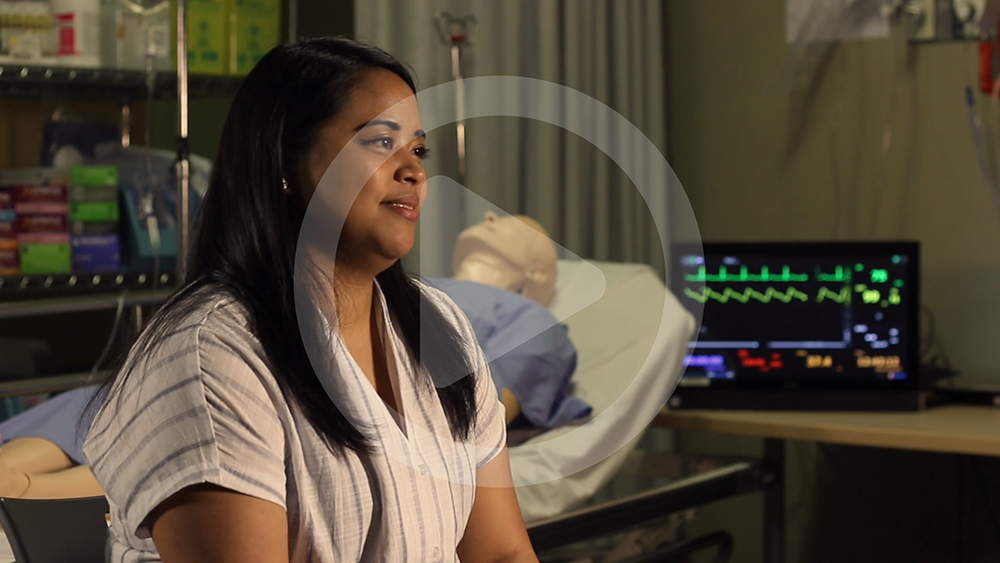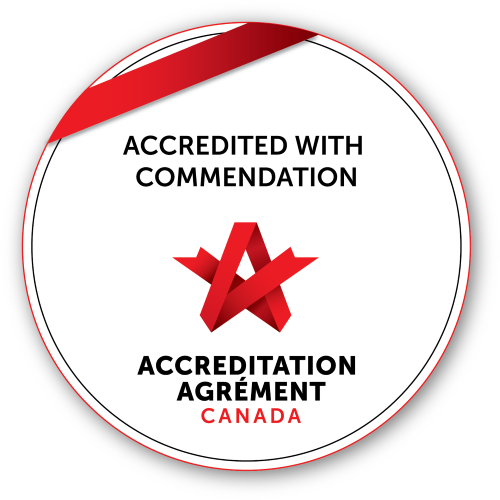Radiological Technology: University of Toronto Joint Program

Program at a glance:
Credential Earned: Bachelor of Science in Medical Radiation Sciences from the University of Toronto and Advanced Diploma from The Michener Institute of Education at UHN
Program Length: 3 years (Full-time)
Program Delivery: On site with online components (University of Toronto's St. George Campus and Michener’s St. Patrick Campus)
Start Date: September 2024
Application Deadline: February 1, 2024
Program Code: TRS
About the Program
Take a look inside an expansive imaging field
Graduates of the joint University of Toronto / Michener Radiological Technology program will be able to provide effective and compassionate care for patients while carrying out diagnostic medical imaging procedures. The program will prepare students to be able to communicate with patients and members of the health care team, as well as operate sophisticated medical imaging equipment. The program encourages students to develop the necessary technical, critical thinking and problem-solving skills to complete and adapt radiological procedures based on a patient’s medical condition. Using the extensive on-site tools, such as the X-ray, Computed Tomography (CT) and operating room equipment, the program provides students with the opportunity to gain competence and confidence in a simulated environment before proceeding to the clinical practicum.
Graduates can further specialize in magnetic resonance imaging (MRI), ultrasound, health informatics and management.
Graduates are eligible to write the national certification examination conducted by the Canadian Association of Medical Radiation Technologists (CAMRT) . Certification qualifies graduates to work across Canada and allows them to apply for registration as a radiological technologist with the College of Medical Radiation and Imaging Technologists of Ontario (CMRITO) .
The Radiological Technology program is accredited by Accreditation Canada . Accreditation is a quality improvement process that ensures educational programs meet national standards and that students acquire the knowledge, skills, and competencies for safe and effective care at entry to practice.
“The Radiological Technology program allowed me to experience hands-on learning with exceptional X-ray, CT and health care equipment, along with excellent instructors who want their students to succeed.”
Take a Radiological Technology Virtual Tour
Visit the U of T website for application information
Admission Requirements
About the Profession
Radiological Technology includes the use of medical imaging technology and advanced computer systems to produce and enhance radiographic images to detect injury and disease.
Radiological Technologists perform medical imaging services in a compassionate, patient-focused model of care. Technologists operate a variety of medical imaging equipment in areas such as general radiography, CT, fluoroscopy, mammography and bone mineral densitometry (BMD).
Technologists are responsible for verifying the appropriateness of the requested procedures through consultation with the health care team. In producing diagnostic images, technologists provide optimal care for the patient, employ appropriate radiation protection measures based on the patient’s condition. The quality of the imaging provided is reviewed by the technologist to allow for diagnosis. The field of Radiological Technology also involves participation in therapeutic procedures in CT, the operating room and the interventional suite.
Graduates are employed in a variety of areas including hospitals and independent health facilities, government agencies, medical imaging equipment and software sales and support, new product development and education.
What Will I Study?
When you enroll in the Radiological Technology program, you will study a variety of topics and procedures, including performing competent diagnostic procedures in all aspects of medical imaging, analyzing and interpreting images to determine sufficient diagnostic quality and managing medical imaging technology to ensure exceptional diagnostic quality.
Upon graduation, you will have developed proficient skills in communication with patients, physicians and other members of the Healthcare team, confirming appropriate diagnostic procedure/intervention and assessing and responding to the patient’s needs and condition prior to, during and post diagnostic procedure in a safe and effective manner.
For detailed course descriptions please see the UofT Radiological Technology Program page.
Clinical Education
Length: 42 weeks
- 4 weeks at the end of Year 1
- 4 weeks at the end of Year 2
- 30 weeks in Year 3
At the end of the first year of the program, you will be placed in an affiliated clinical site for an eight-week period in May and June. At the end of the second year, you will return to your clinical site for four weeks as a transition to the final clinical course in the third year of the program where you will complete two full semesters of clinical experience (30 weeks).
As clinical education is a major component of all Michener programs, our affiliated clinical sites are integral to your education, and they include teaching and community hospitals in Ontario. Working closely under the supervision of Radiological Technologists, you will integrate knowledge and skills into practice during the clinical phase of your program. Clinical placements give you hands-on experience in work environments and the opportunity to network with potential employers.
For more information about Clinical Education, please see Michener’s Clinical Education Model page.
Textbooks
Scholarship & Bursaries
Tuition



